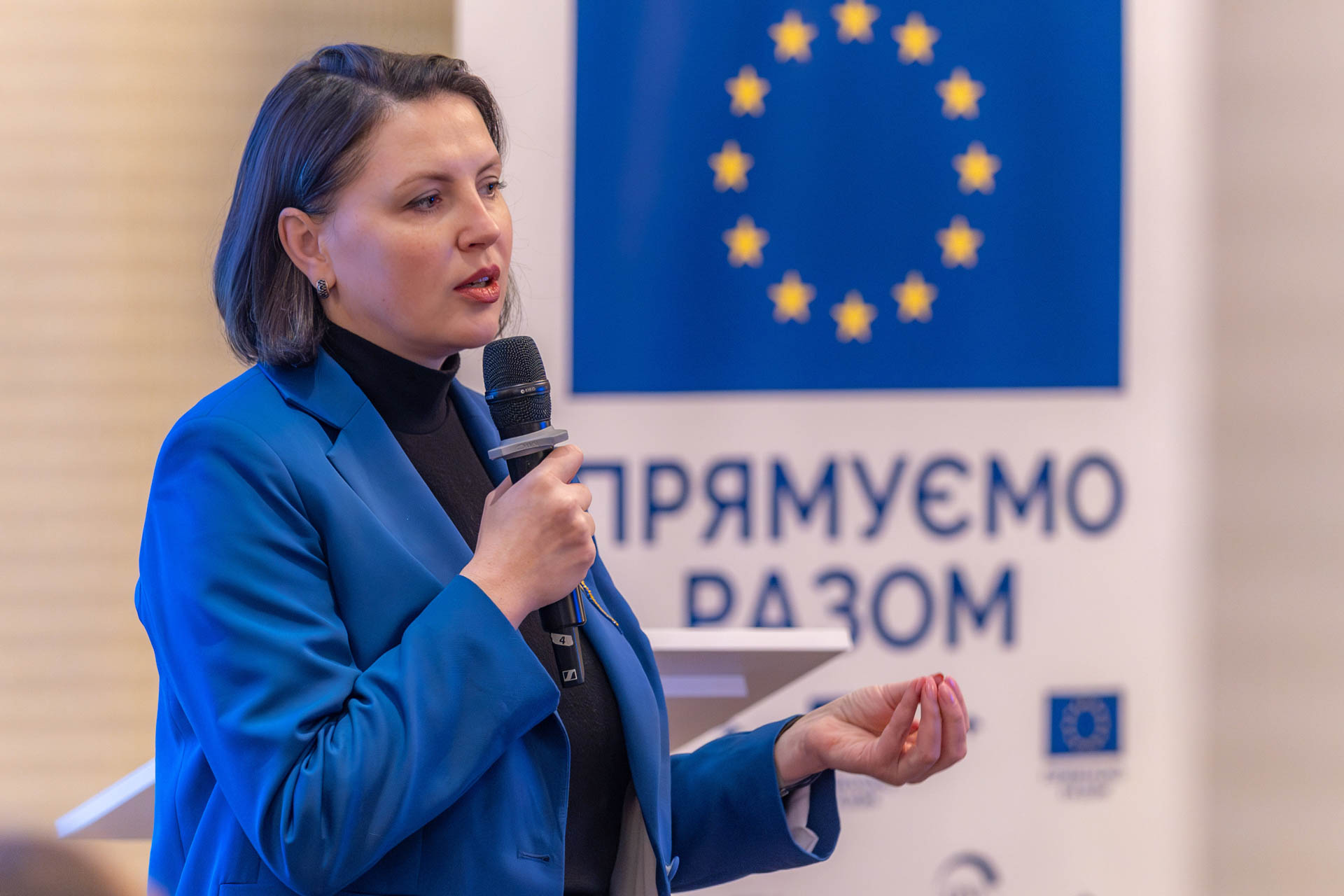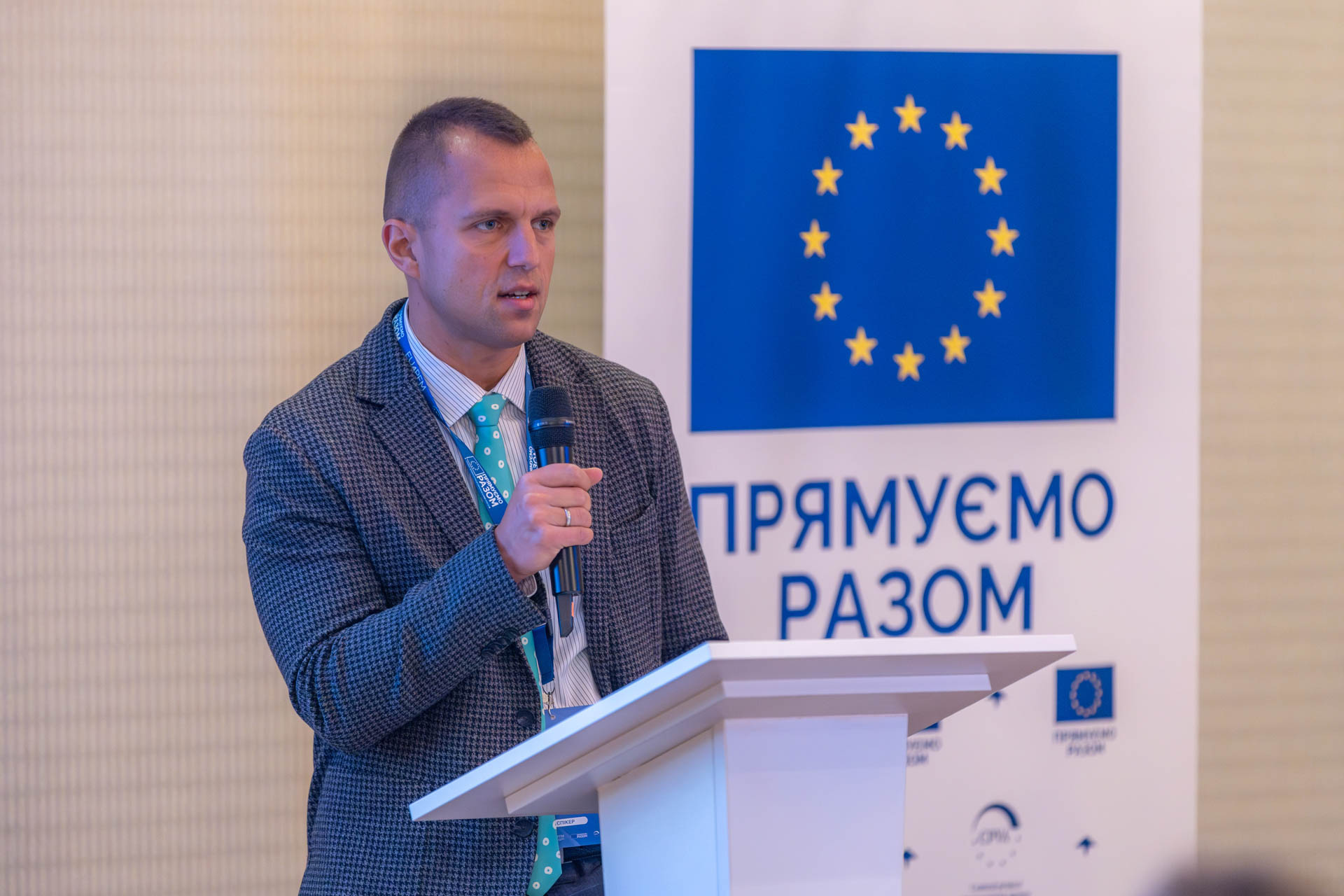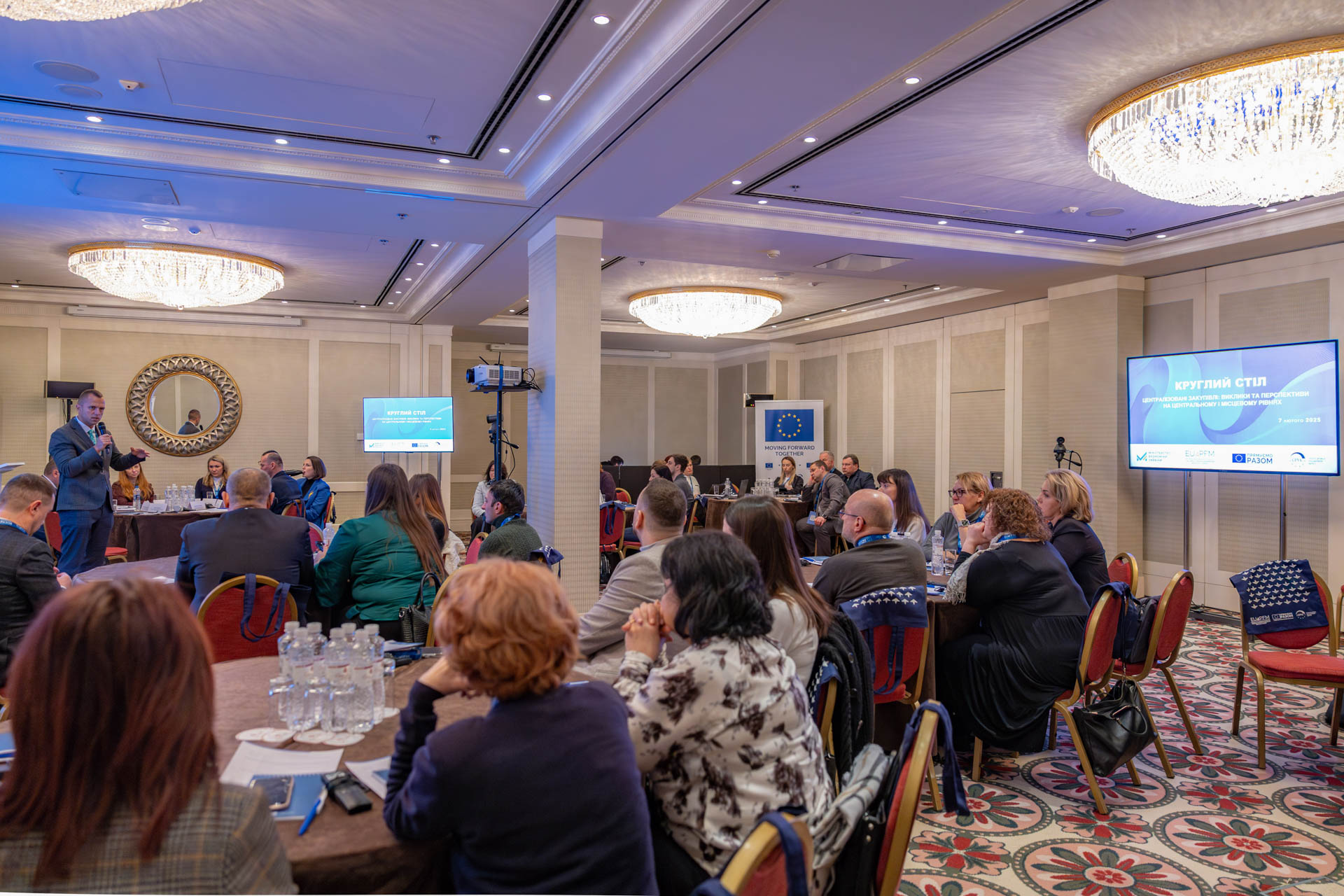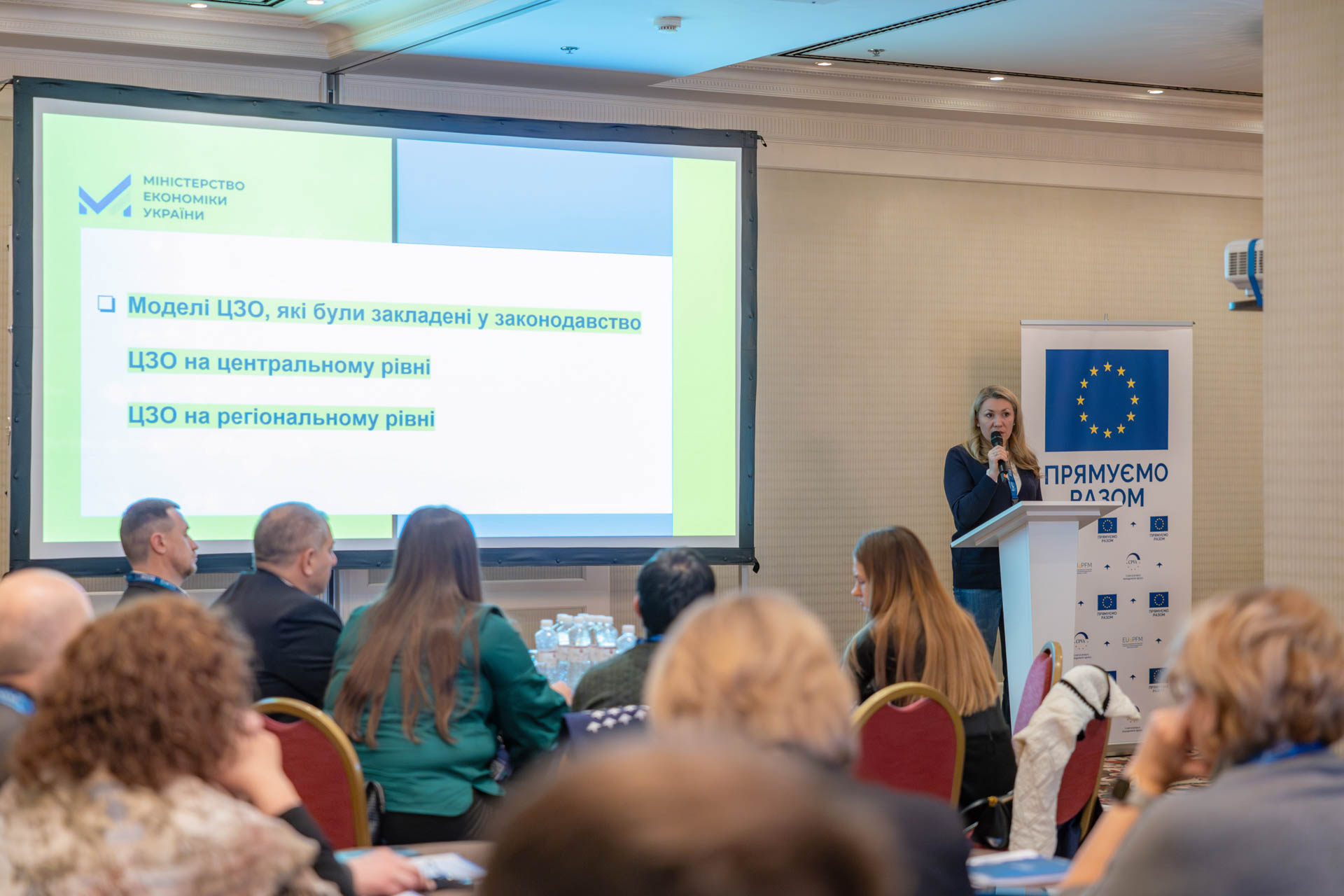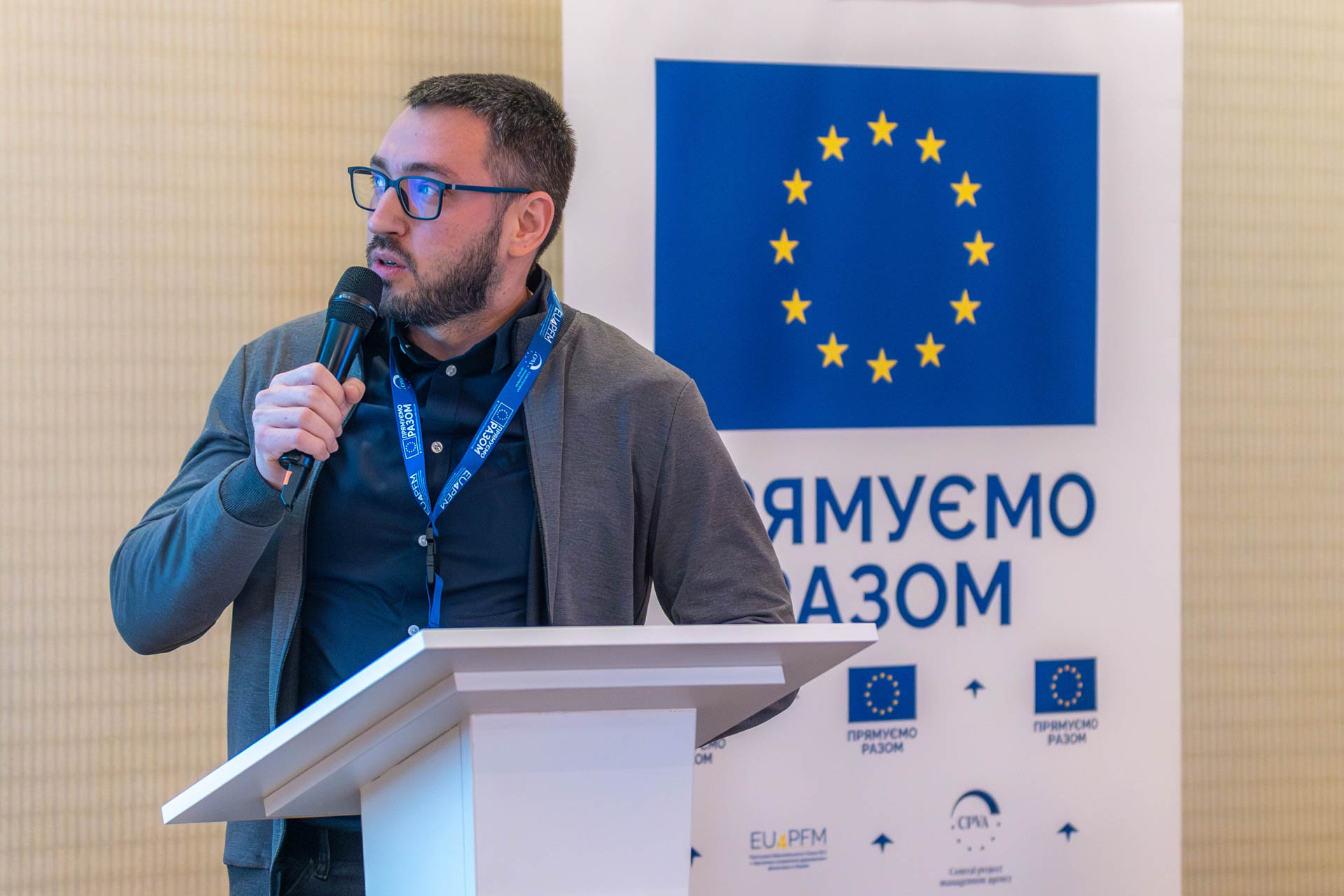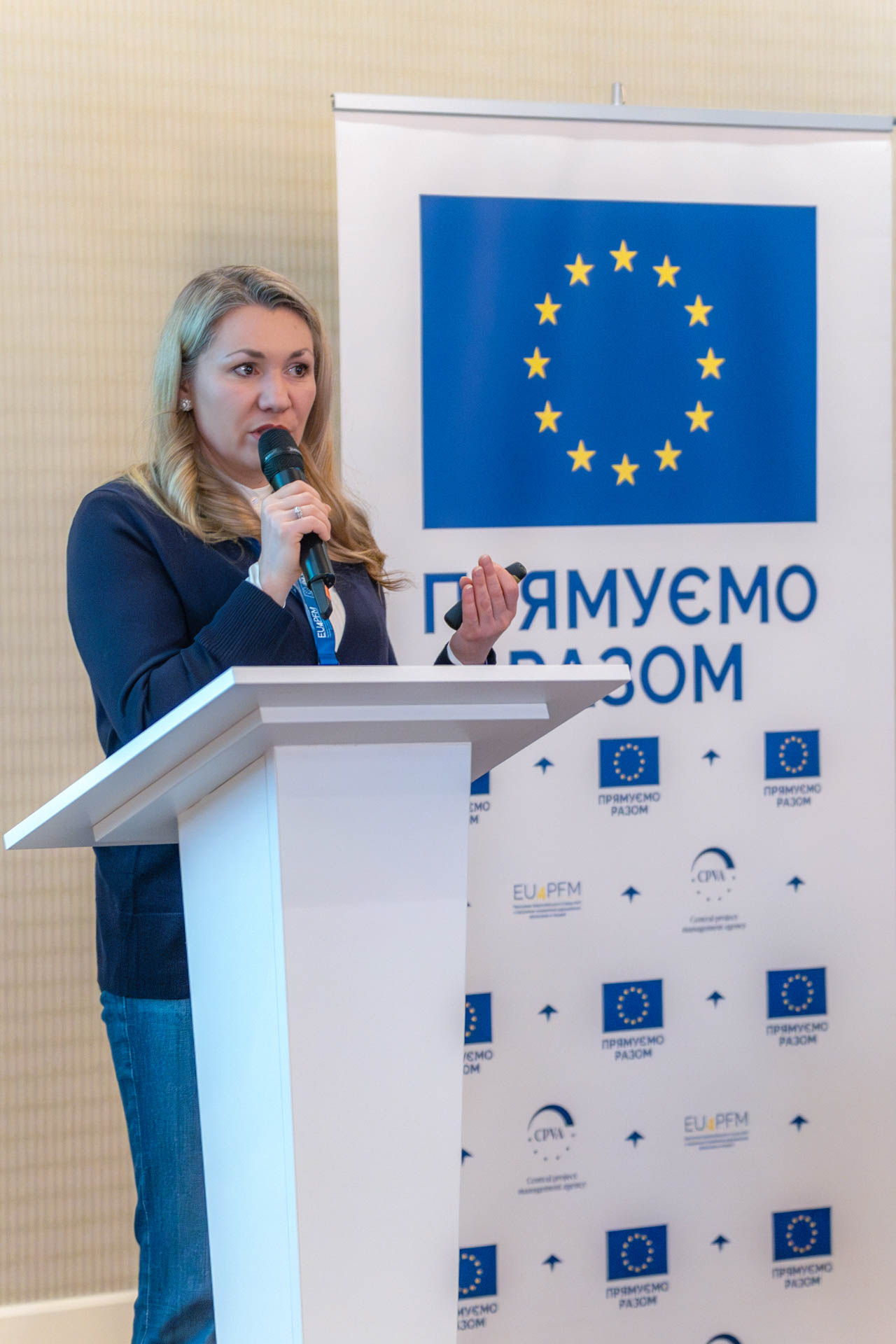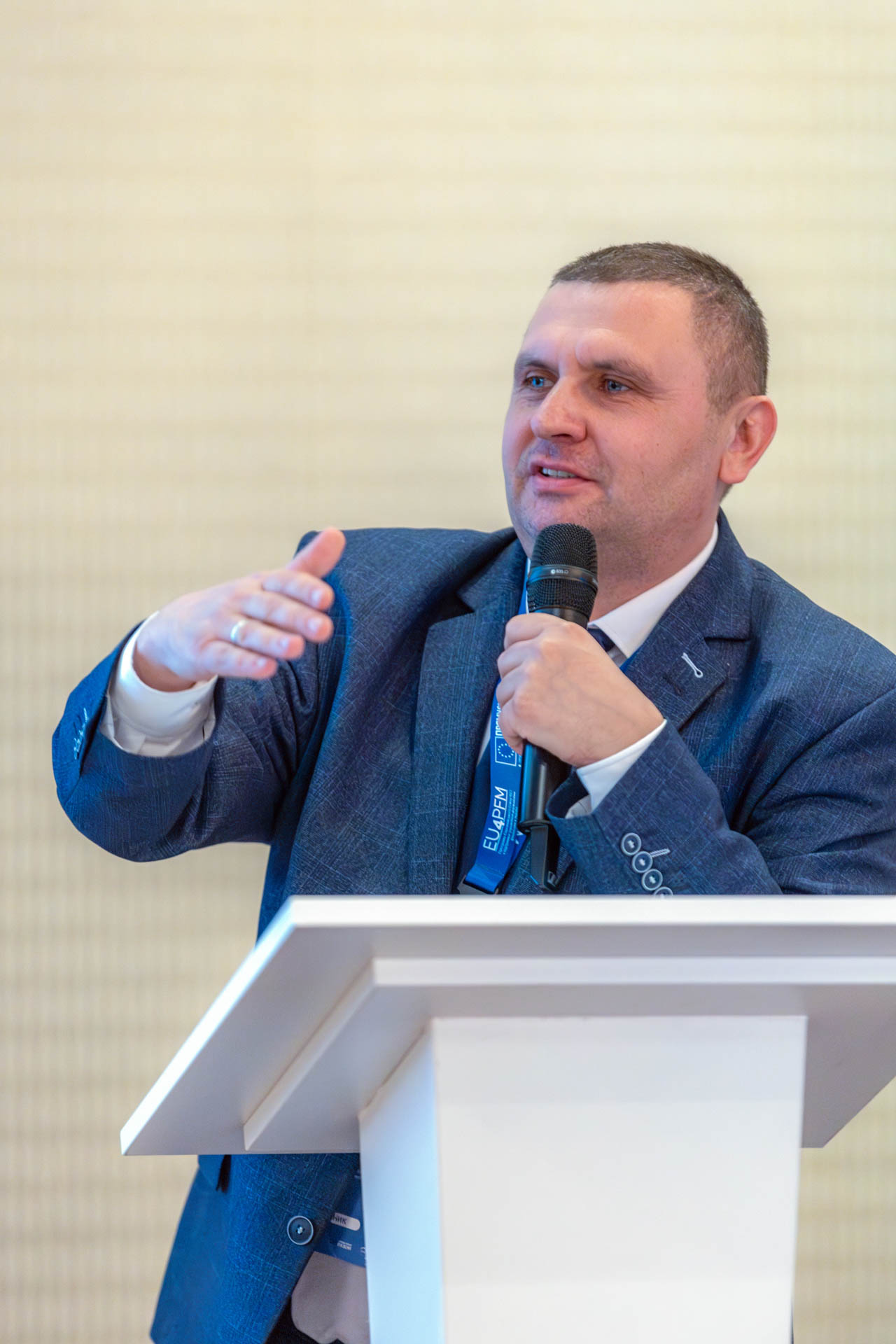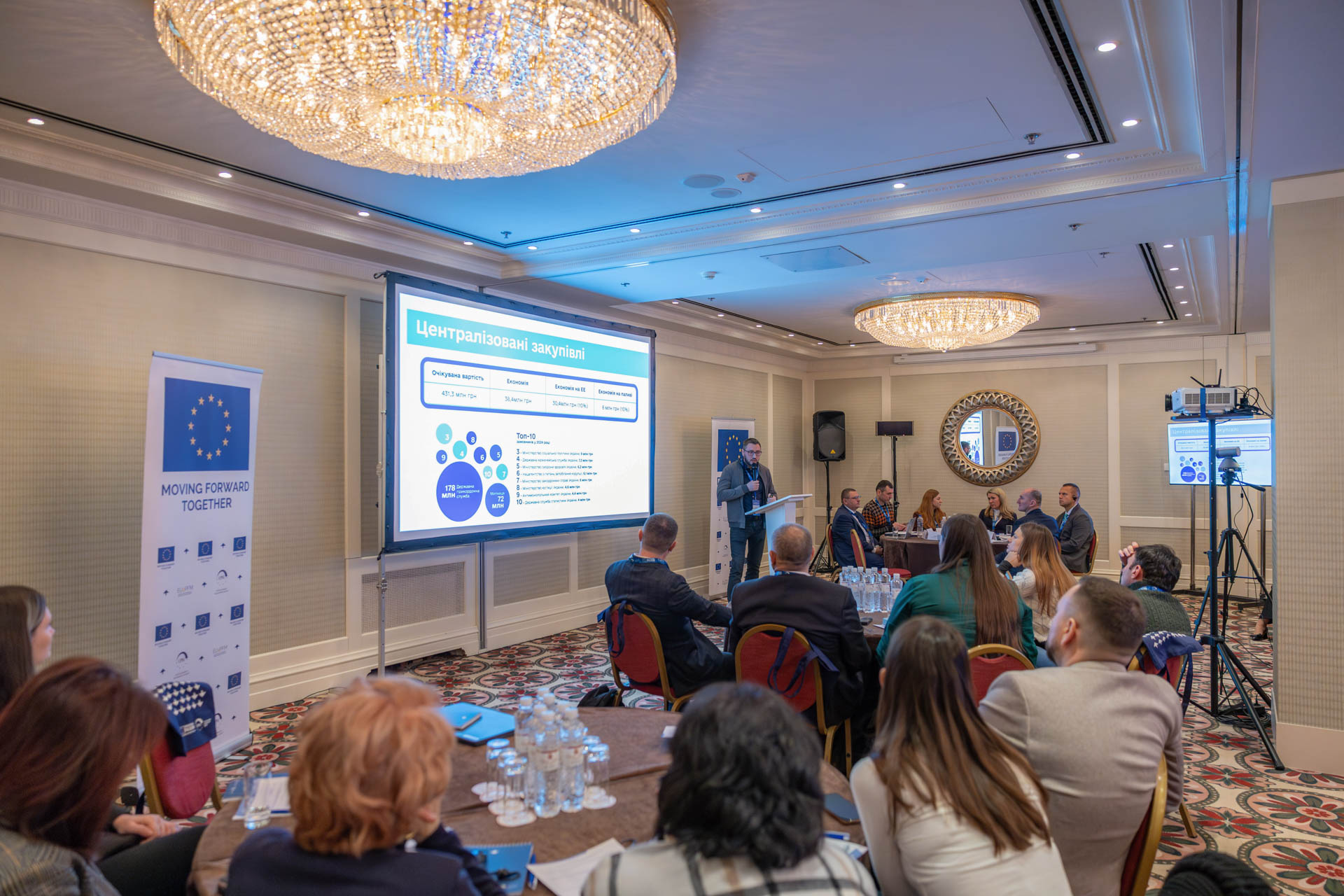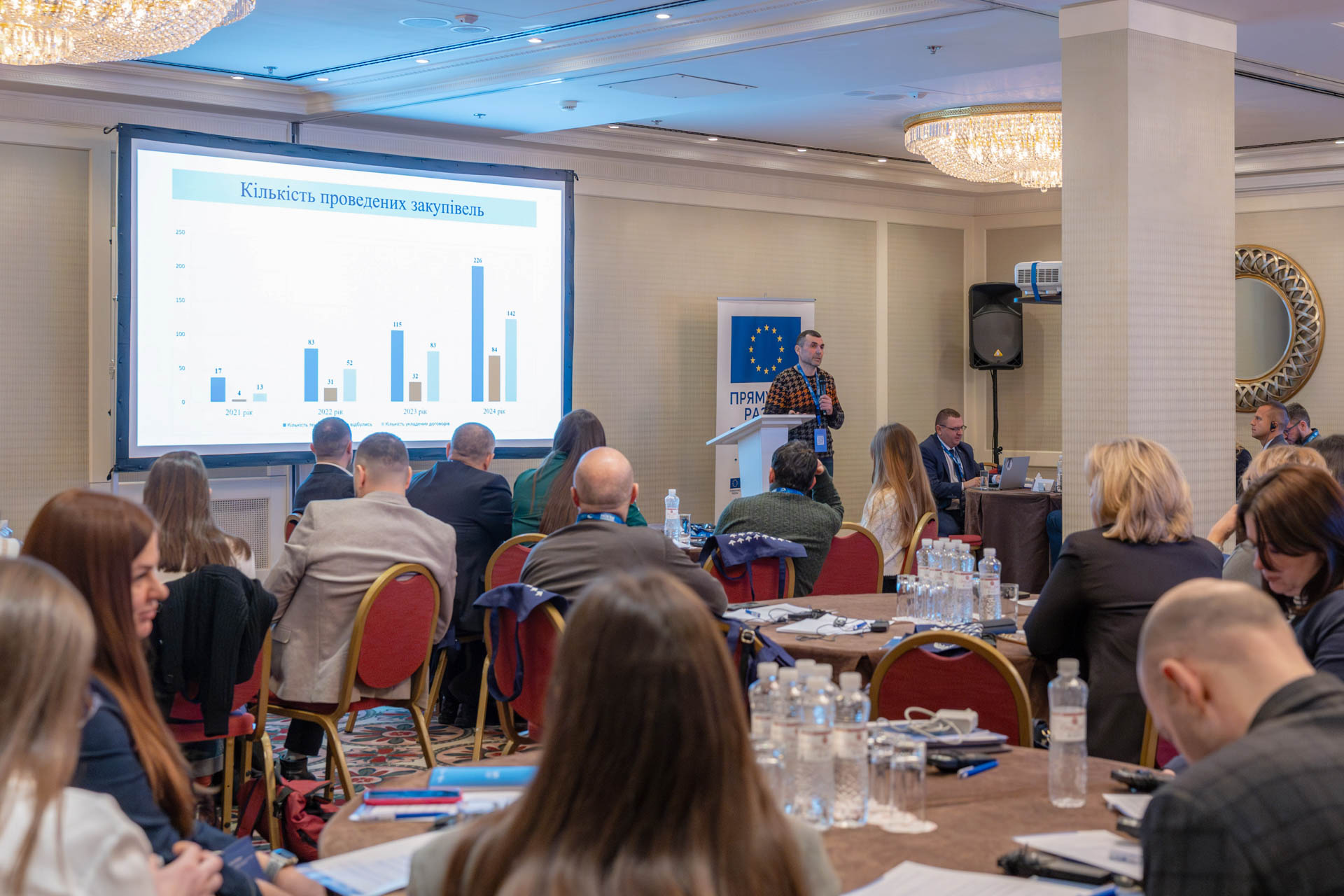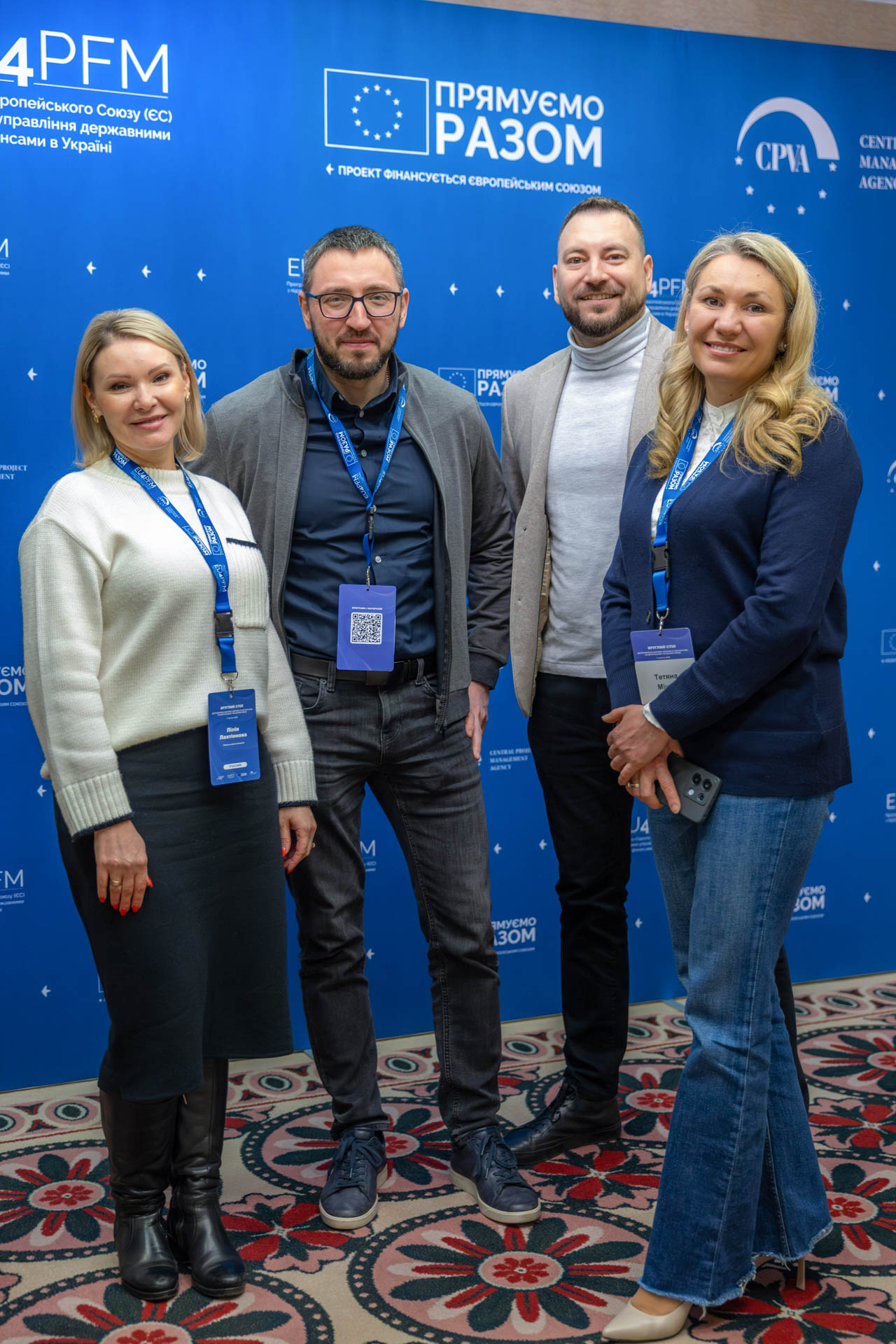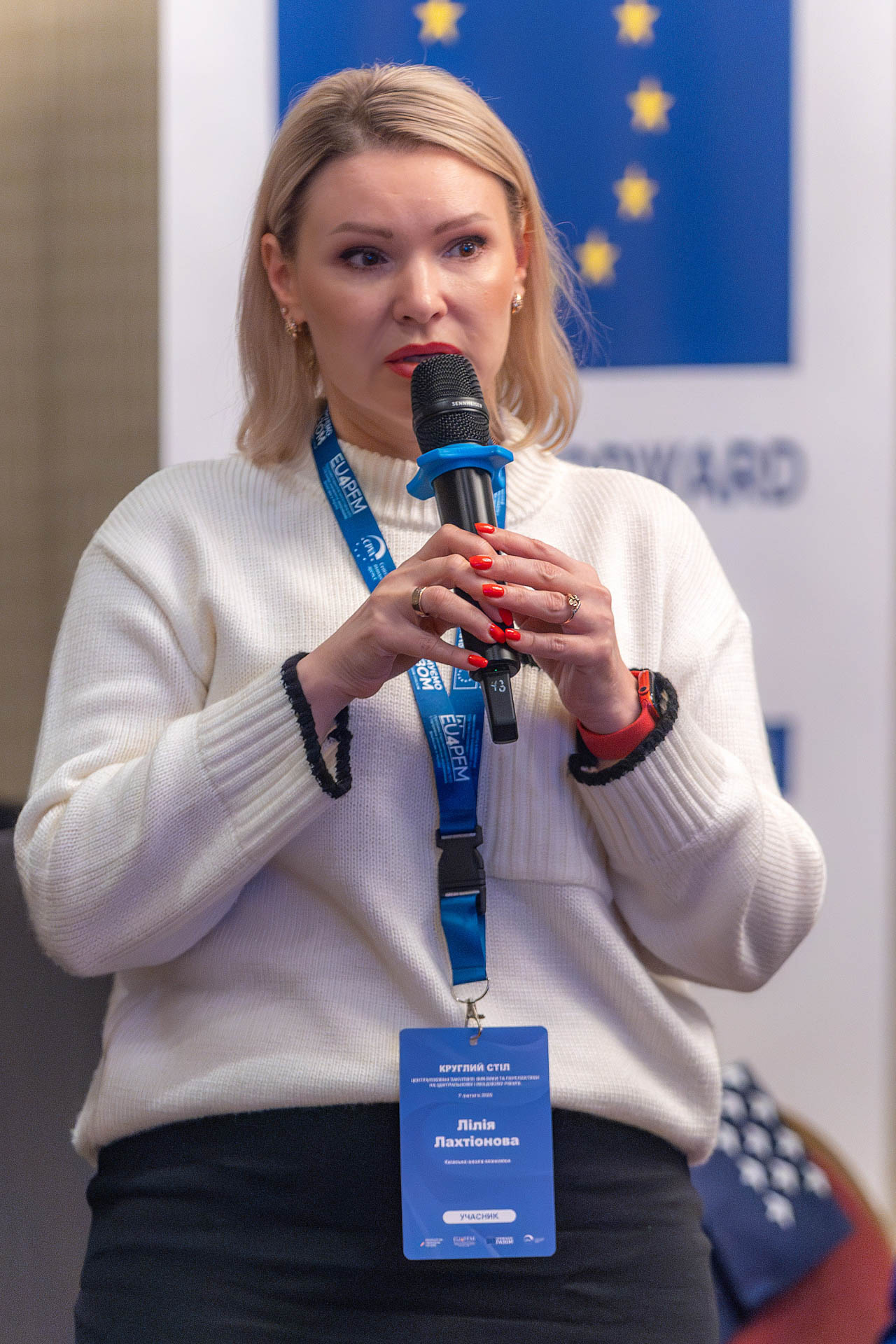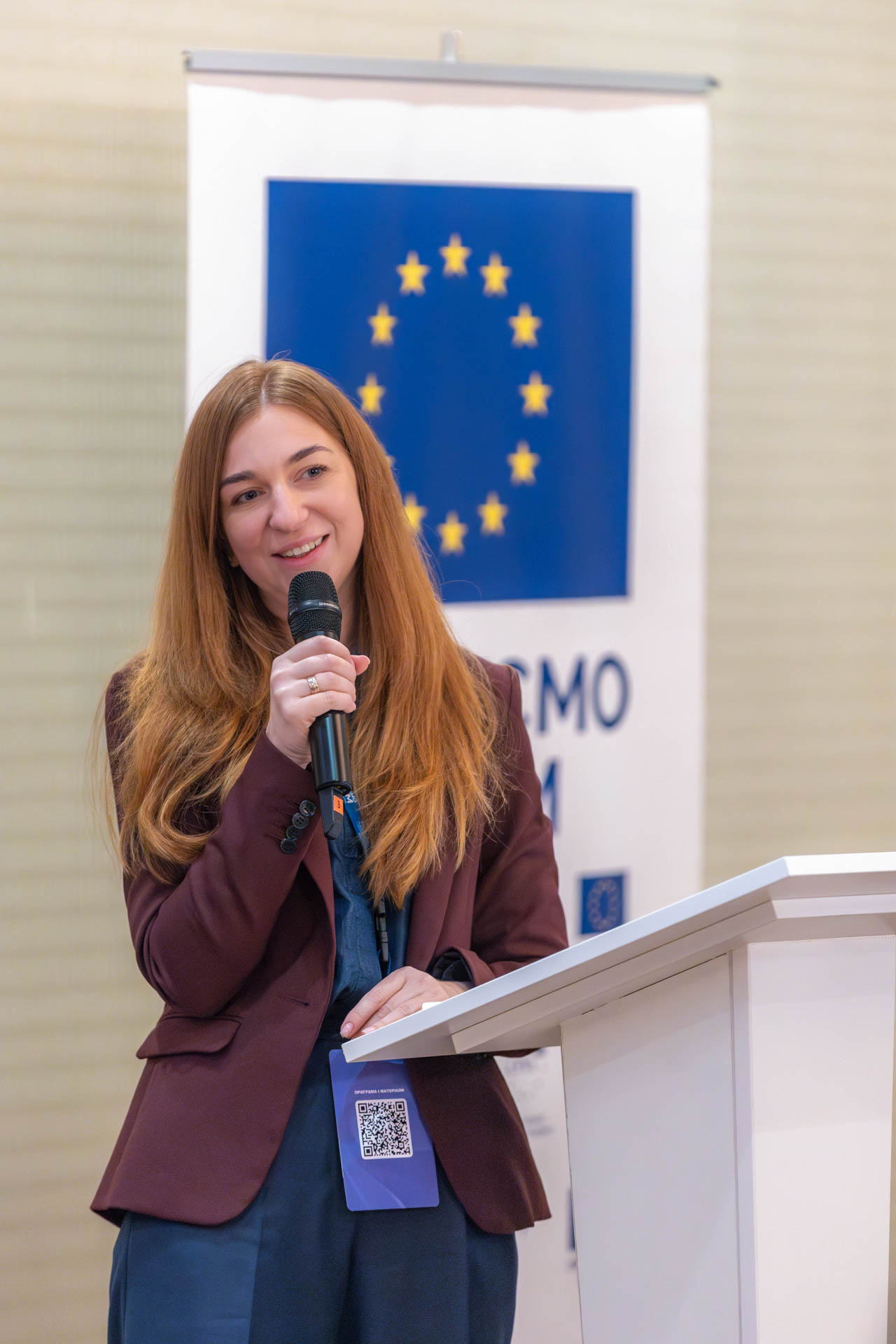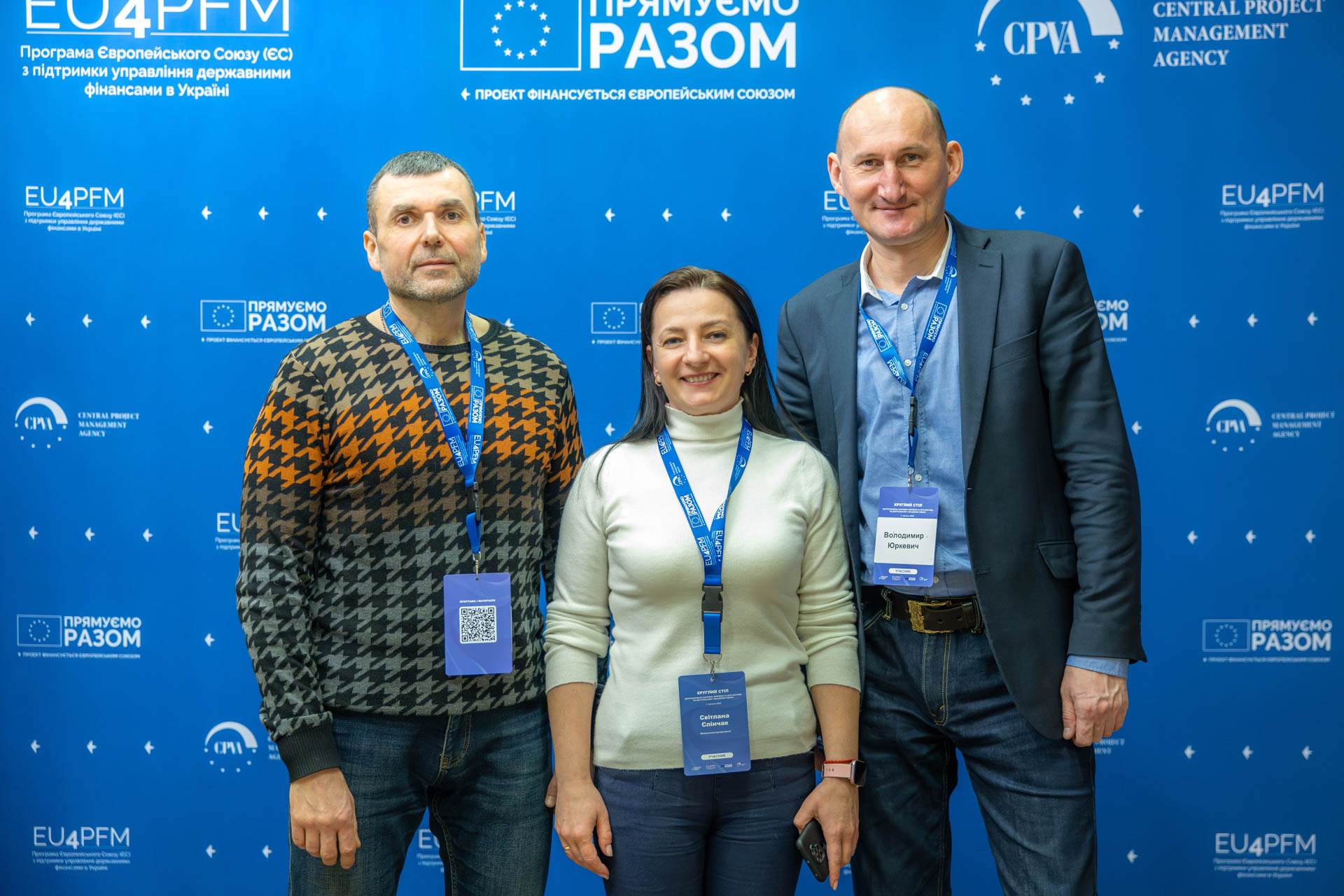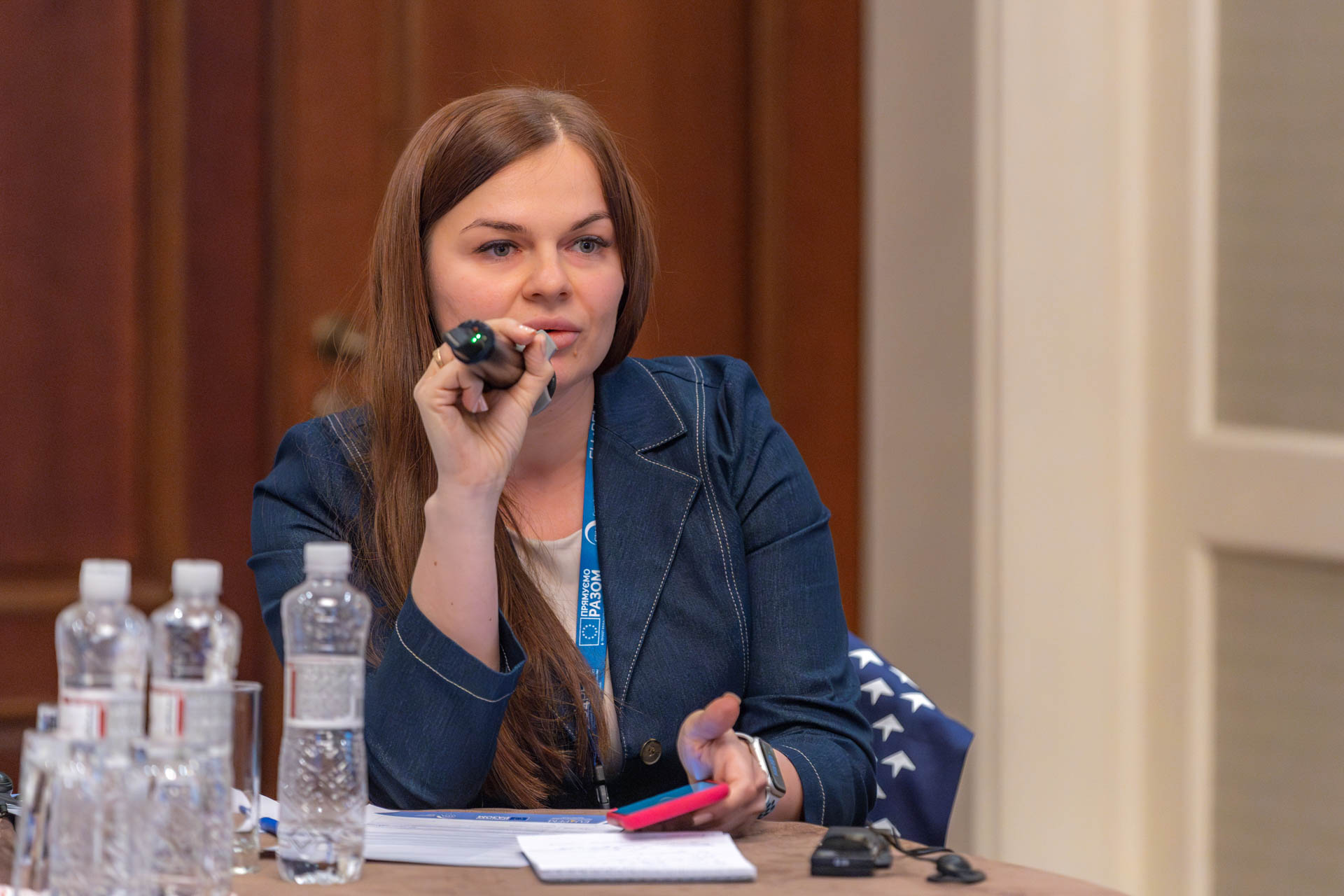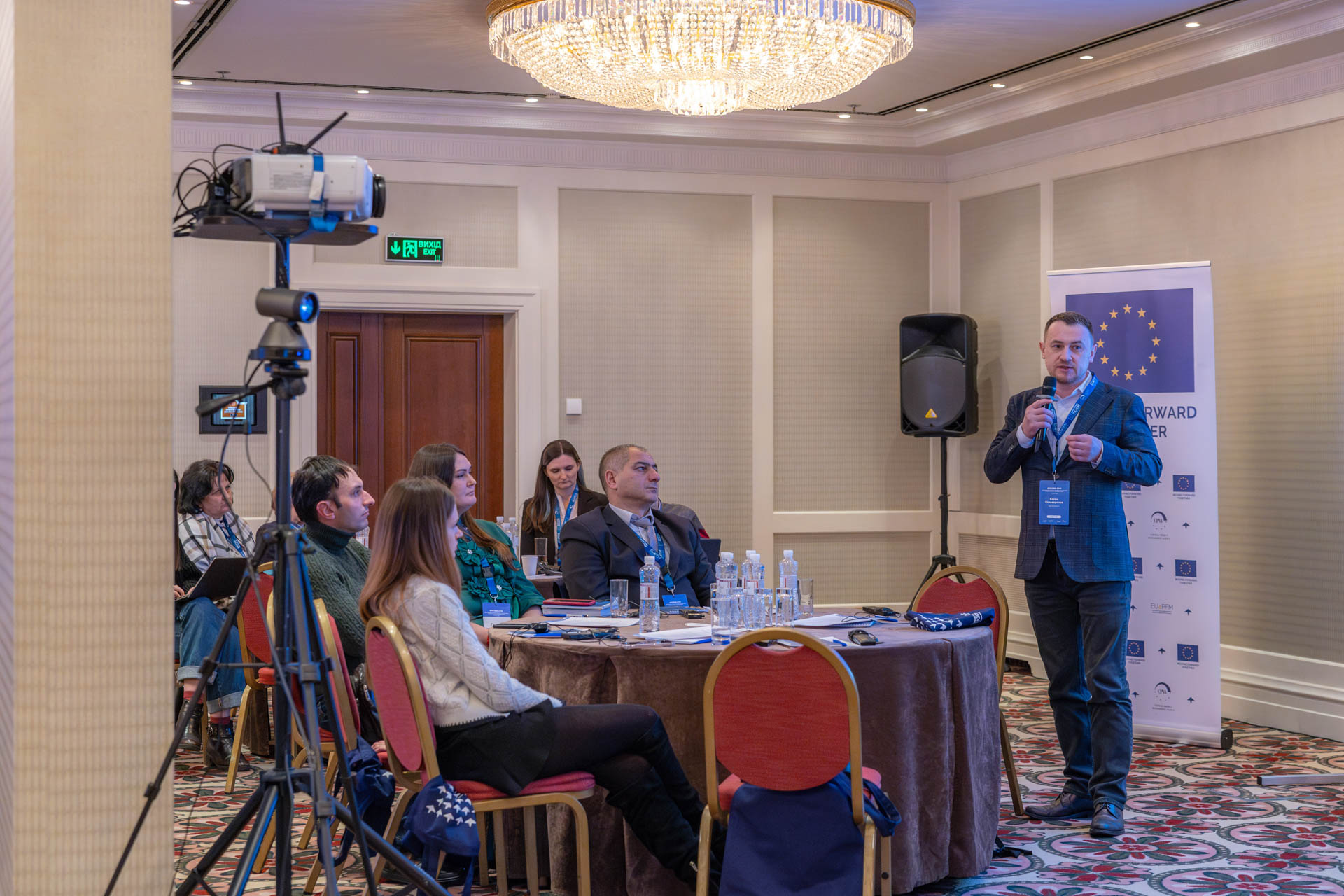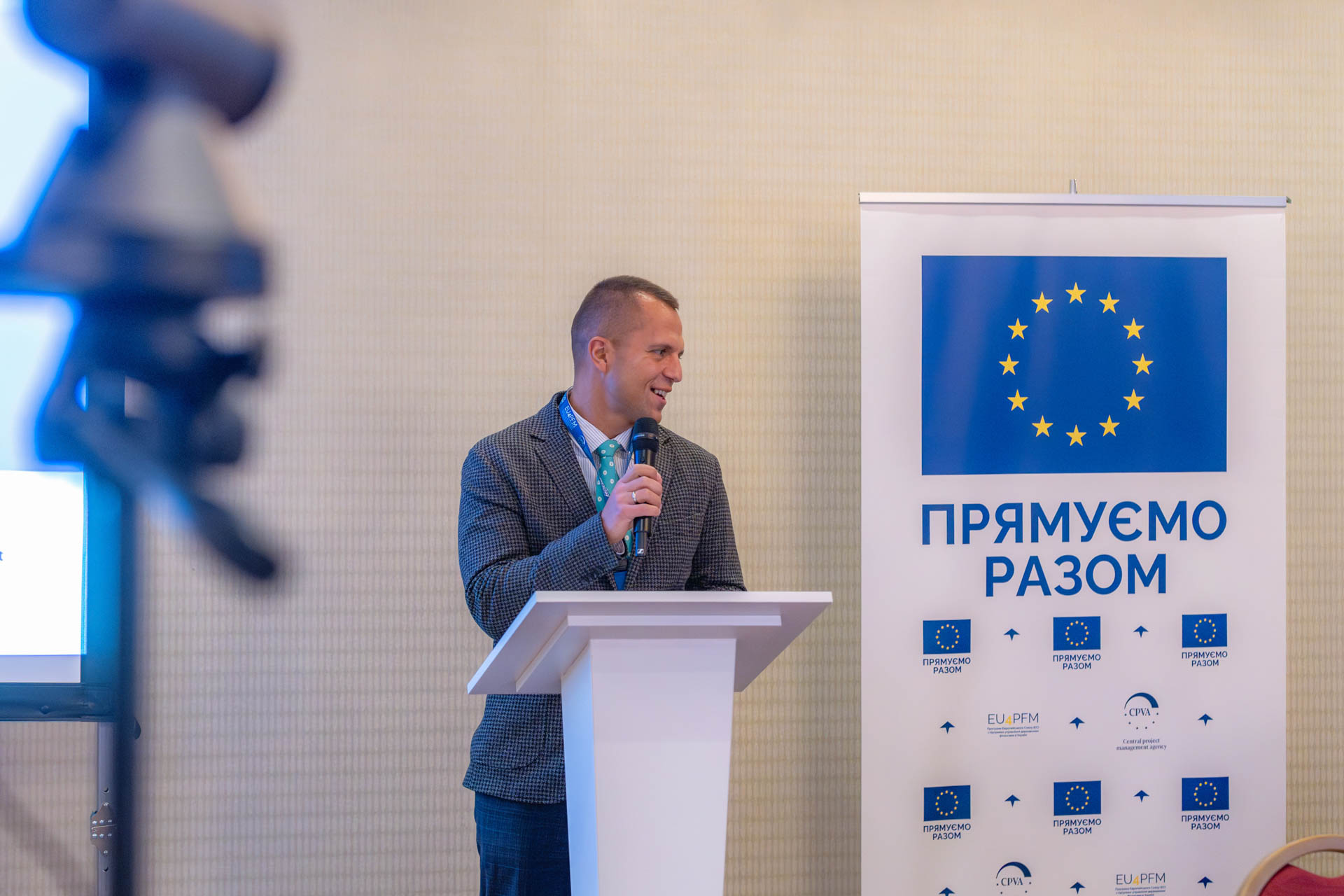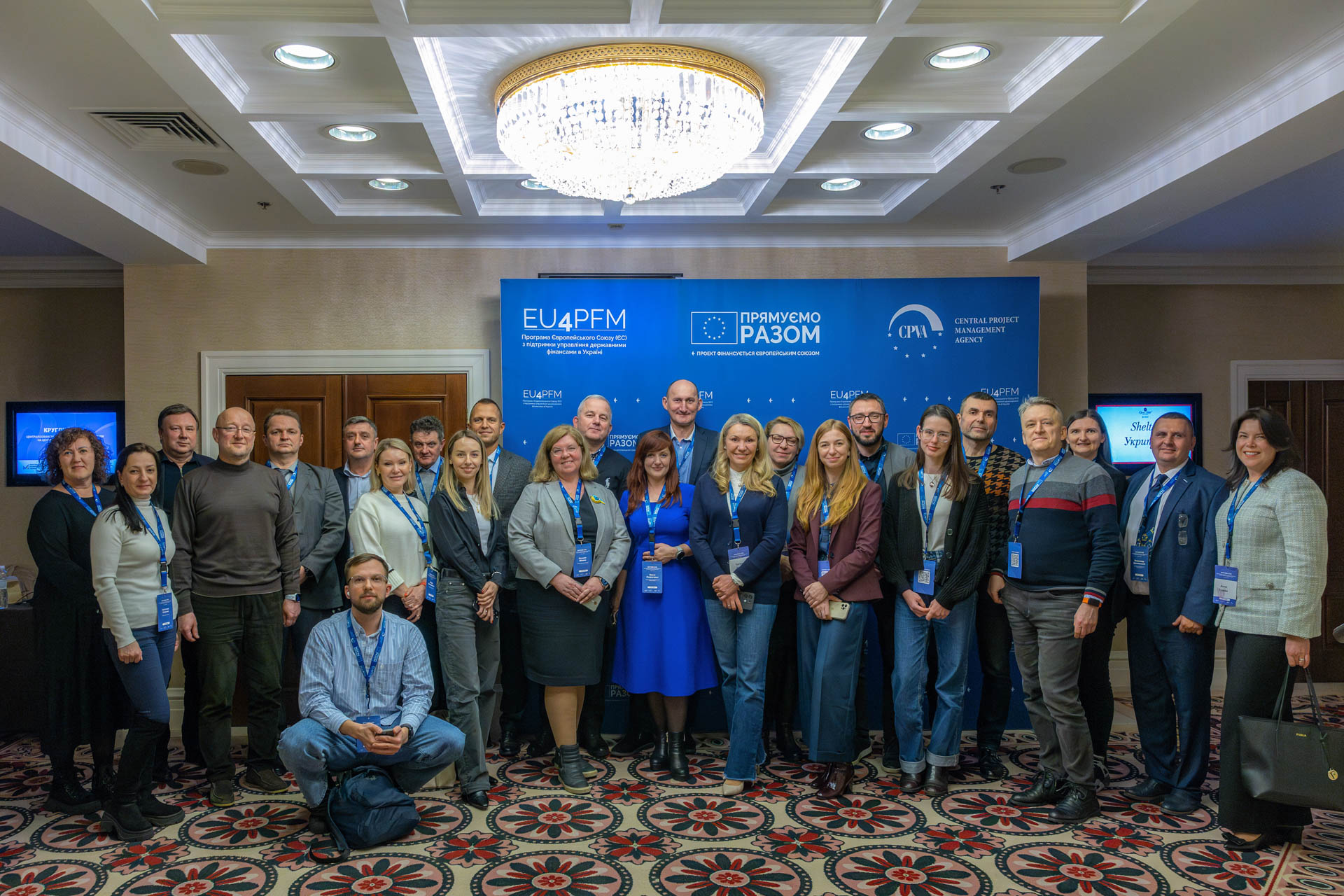Strengthening centralised procurement in Ukraine: EU4PFM Roundtable explores challenges and opportunities
The EU4PFM Public Procurement Component in cooperation with the Ministry of Economy, recently hosted a roundtable discussion on “Centralised procurement: challenges and prospects at central and local levels.”
The event addressed the growing importance of centralised procurement in Ukraine, particularly in the context of the ongoing full-scale war and the EU accession process, where efficiency and enhanced oversight of public financial resources are paramount.
Centralised procurement is not just a mechanism for achieving better value for money through aggregated demand — it also plays a key role in reducing corruption, fostering innovation, and improving overall public procurement capacity. However, realising these benefits requires a well-structured legal and organisational framework, specialised expertise and sustained political commitment.
Recognising its significance, the Government of Ukraine has prioritised the development of centralised procurement in the 2024-2026 Public Procurement Reform Strategy. While notable progress has been made at the central level with five well-functioning central purchasing bodies (CPBs) operating across various sectors, further efforts are needed to strengthen procurement capacity at the regional and local levels.
The roundtable served as a platform for stakeholders to assess the current state of centralised procurement in Ukraine, draw lessons from EU Member States, and explore pathways to improve the efficiency and effectiveness of procurement organisations. Participants also shared practical experiences, examined the impact of CPBs on public procurement outcomes, and identified solutions to existing challenges.
In the opening remarks, Deputy Minister of Economy Nadiya Bigun expressed gratitude to the EU4PFM Procurement Team for their support and organisation of the event. The Deputy Minister emphasised the crucial role of CPBs in professionalisation: “Central purchasing bodies are a cornerstone of professionalisation. The effectiveness of these organisations will determine the overall development of Ukraine’s procurement sector. Our EU partners commend Ukraine’s efforts in maintaining procurement transparency through Prozorro, even amidst war. However, they also highlight the need to transition from price-focused procurement to a model that balances price and quality — a key step in our continued reform journey.”
Eriks Mezalis, Team Leader of the Procurement Component, highlighted the growing trend towards centralisation in Ukraine: “People in Ukraine have recognised the many benefits of centralisation — it enables economies of scale, opens new markets and supplier opportunities. Additionally, as Ukraine moves forward in its EU accession process, it is essential to align with EU directives and leverage the opportunities they provide, such as framework agreements and dynamic purchasing systems. Experience has shown that these tools, when combined with centralised procurement, deliver excellent results”.
The event brought together approximately 70 participants in a hybrid format, including representatives from Ukrainian and EU central procurement organisations, the Ministry of Economy of Ukraine, the Antimonopoly Committee, business associations, NGOs, and experts from the EU4PFM Public Procurement Component. Beyond discussions, the roundtable fostered valuable networking opportunities and the establishment of new cooperation in the field of public procurement.



